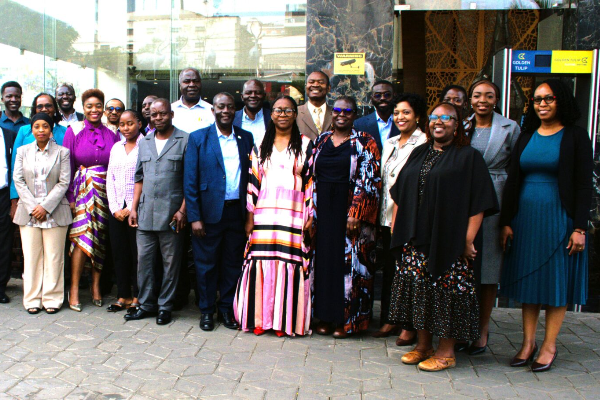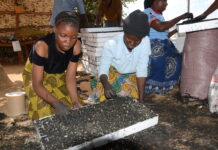Stakeholders from across Eastern and Central Africa (ECA) have endorsed a new strategy by the Association for Strengthening Agricultural Research in Eastern and Central Africa (ASARECA) to scale climate-smart agriculture (CSA) as the region grapples with increasingly severe and varied impacts of climate change on food systems.
The Eastern and Central Africa Climate-Smart Agriculture Scaling Strategy (ECA CSA Strategy), unveiled during a three-day validation workshop in Nairobi from September 29 to October 1, 2025, sets out a roadmap to help countries respond to the complex, localized, and often unpredictable challenges of climate change.
“The way different countries are affected by climate change can be similar, but can also vary substantially,” participants were told during the opening session. The new strategy aims to provide a framework that countries in the sub-region can adapt to their unique circumstances while pursuing common goals of resilience, sustainability, and food security.
A Tailored Approach to Diverse Realities
Speaking at the workshop, Dr. John Recha, a Senior Research Scientist at the International Livestock Research Institute (ILRI), emphasized the need for region-specific solutions.
“We have arid lands, coastal areas, flat low lands, undulating topographies, as well as areas with excessive rains, among others,” Dr. Recha said. “This implies that strategic interventions should be designed to deal with these specific contexts. While the CSA Strategy identifies areas for joint regional focus, it is not a one size-fits-all framework, because different regions face different challenges.”
The ECA CSA Strategy acknowledges the region’s ecological diversity and provides intervention options ranging from soil and water management to livestock and agroforestry solutions. It also promotes the development of early maturing and disease-resistant crop varieties, alongside the adoption of good agronomic practices.
Building Resilient Food Systems
The workshop brought together policymakers, researchers, farmers’ representatives, and development partners to refine and validate the CSA Scaling Strategy. The event was convened by the Association for Strengthening Agricultural Research in Eastern and Central Africa (ASARECA) and its partners — Alliance Bioversity International and CIAT — under the Accelerating Impacts of CGIAR Climate Research for Africa (AICCRA) project.
Funded by the World Bank, AICCRA is working to scale up climate-smart innovations that are being developed and disseminated through National Agricultural Research Institutes (NARIs) in member states. The strategy is intended to serve as a common platform to harmonize these innovations while respecting each country’s priorities.
“The consultation and validation workshop is aimed at converging various contexts into a framework of systems, priorities, and action streams for CSA scaling in ECA,” organizers said.
Key Intervention Areas
The CSA Strategy outlines several priority areas for investment and implementation across the region. These include:
- Soil and water management: Ensuring efficient use of scarce water resources and improving soil fertility.
- Livestock interventions: Supporting pastoralist communities with adaptive strategies such as improved breeds and fodder systems.
- Agroforestry: Promoting tree-based systems that enhance soil health and provide income diversification.
- Crop development: Breeding and deploying early-maturing, drought-tolerant, and disease-resistant varieties.
- Agronomic practices: Encouraging sustainable land-use systems, conservation agriculture, and integrated pest management.
Regional and Global Support
The CSA Scaling Strategy reflects a broader global recognition that localized yet coordinated action is essential to safeguard food security in the face of climate change. It also underscores the role of regional research institutions and development partners in building farmer resilience.
By aligning regional research and development with national policy frameworks, stakeholders believe the strategy will accelerate adoption of climate-smart innovations and strengthen food systems across ECA.
“This roadmap is critical because it provides direction not just for governments, but also for development partners and farmers themselves on how to prioritize investments and actions,” one participant noted.
Looking Ahead
With agriculture employing the majority of the population and contributing significantly to national economies in Eastern and Central Africa, building resilience in the sector is seen as vital for poverty reduction and sustainable development.
As countries finalize their commitments under the strategy, attention will turn to financing, capacity building, and ensuring that innovations reach smallholder farmers — the most vulnerable to climate shocks.
Stakeholders left the Nairobi workshop optimistic that the ECA CSA Scaling Strategy would provide the needed foundation for coordinated action. As Dr. Recha summed up: “Climate change presents different challenges for different regions. The key is to design strategic interventions that make sense for those contexts while learning from each other at the regional level.”








